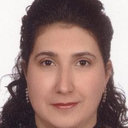Dietary arginine silicate inositol complex improves bone mineralization in quail.
Atslēgvārdi
Abstrakts
Skeletal abnormalities, low bone mass, bone deformities, and bone fractures increase the risk of osteoporosis and osteoarthritis, which are of concern from both a public standpoint and a cost-of-care burden standpoint. Arginine silicate inositol complex (ASI; Arg = 49.47%, silicone = 8.2%, inositol = 25%) is a novel, bioavailable source of Si and Arg and one that offers potential benefits for vascular and bone health. Skeletal abnormalities and architectural deterioration of bone tissue are common under hot climate conditions in the poultry industry. In this study, we evaluated the effects of ASI supplementation on performance and bone mineral density (BMD) in Japanese quail (Coturnix coturnix japonica) exposed to the high ambient temperature of 34 degrees C. The birds (n = 180; 10 d old) were randomly assigned to 6 treatment groups consisting of 10 replicates of 3 birds. Birds were kept in wire cages in a temperature-controlled room at either 22 degrees C (thermoneutral; TN) or 34 degrees C (heat stress; HS) for 8 h/d (0900 to 1700 h until the end of study) and were fed a basal (control) diet or the basal diet supplemented with either 500 or 1,000 mg of ASI/kg of diet. Heat exposure decreased performance and bone mineralization when the basal diet was fed (P = 0.001). The ASI supplement had no effect on feed intake, BW, feed efficiency, and carcass traits (P > 0.05) in quails reared under TN or HS conditions. The BMD was significantly improved by ASI supplementation in both TN and HS groups [0.72 (TN) vs. 0.60 (HS); P < or = 0.05]. Serum osteocalcin, dehydroepiandrosterone concentrations, and alkaline phosphatase activity increased, whereas tumor necrosis factor-alpha and Creactive protein concentrations decreased, as dietary ASI supplementation increased in quail reared under HS. This improvement was linear with increased doses of supplement (P = 0.001). In the ASI group, the amount of Ca, P, Mg, and Mn in the excreta decreased (P < or = 0.05), and the concentrations of these minerals in tibia ash increased in quail reared under HS conditions (P < or = 0.05). In conclusion, ASI supplementation to the basal diet significantly improved bone mineralization in quail and did not impact feed consumption, BW gain, or feed efficiency.



